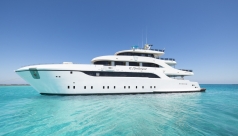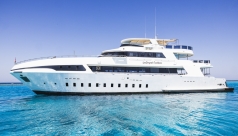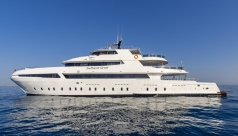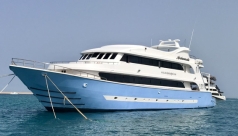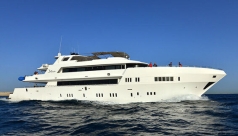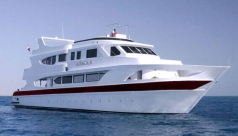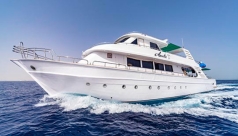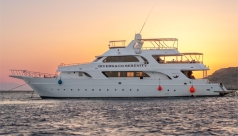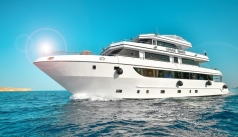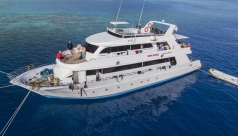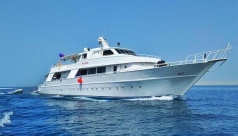The Climate and Best Time to Visit
Egypt has a desert climate where hot sunny days and cooler nights are the norm. Rain is an infrequent occurrence. It is wise to bring both some lightweight and warm clothing. There are 2 seasons in Egypt - summertime (24-42°C) is from June to November, and wintertime (20-29°C) is from December to May. Sudan follows a similar pattern but tends to remain a degree or two warmer.
The Red Sea is an all year liveaboard dive safari destination, with warmest water temperatures between June and August. However, the region is known for occasional strong winds which can blow at any time of year, but especially from October to April, so there is always a possibility that a cruise may need to be re-routed if it is unsafe to travel. Some of the bigger marine species are most frequently seen on a seasonal basis so it's best to consult our Egypt dive sites and Sudan dive sites pages for details on these.
Ports of Departure and How to Get There
Most visitors will arrive in Cairo and take a 1 hour domestic flight with Egypt Air to their port of departure, although some of the more popular ports such as Marsa Alam, Hurghada, Sharm el Sheikh, and Port Sudan have direct international flights too.
Ports are detailed for every trip in the 'Departure Schedule & Prices' section on each of our Red Sea liveaboard boat pages. They will also be sent to you during the inquiry and booking process. The departure and return ports can vary depending on the dates chosen. In some cases the boats are moored at port and depart the day after the trip begins, so you can arrive quite late on the first day of the tour and still board the boat before it departs the following morning.
Protect your diving adventure with specialised travel insurance covering both underwater activities and trip cancellations. Get a competitive quote through our recommended insurance program today:

Places to Stay
For divers wanting to explore Egypt before or after their Red Sea liveaboard cruise, our partner HotelsCombined.com offers diverse accommodations from Cairo hotels to Red Sea resorts. Easily compare options, get instant help via live chat, and book securely - all backed by their 'Low Price Guarantee' for the best rates on your ideal stay:



